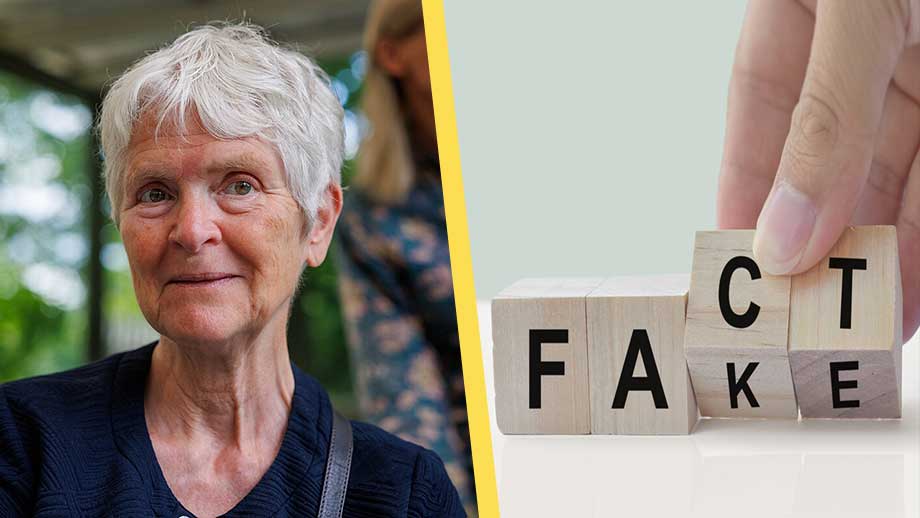The so-called free Western world is becoming increasingly unfree. Freedom of expression, opinion, and the press is being restricted for actors that the power establishment finds uncomfortable or challenges their power position. A common and devious way to censor without acknowledging it is to label expressions, opinions, and media content that one dislikes as ‘disinformation’. This is the view of Inger Enkvist, professor emerita at Lund University.
In a debate article in the Swedish Epoch Times, Enkvist expresses her concern about the ‘silent censorship’ she sees spreading in the Western world, how the fundamental principle of freedom of speech, essential for a functioning democratic society, is ‘undermined in favor of ‘tyrannical tendencies among political leaders, in the press, and at universities’.
READ ALSO: Study: The debate about disinformation is greatly exaggerated
This is something that was previously associated with totalitarian societies and dictatorships but has become increasingly common in the Western world in recent years. Enkvist describes how those in power increasingly restrict the ability of people to access and express opinions by labeling them as ‘disinformation’.
Different rhetoric – same agenda
In communist countries, it is called being enemies of the revolution. In the Western world, those who restrict democracy claim to do so to protect democracy. The rhetorical culture is different, but not the underlying agenda.
Enkvist explains that self-proclaimed disinformation watchdogs have emerged, offering media and companies a helping hand to sift through and filter out disinformation. However, behind this seemingly commendable service lies an activist agenda, often with a left-wing political bias, to suppress and silence voices they dislike.
She gives the example of a magazine in the USA, Spectator, which decided to accept advertisements but received no inquiries. The reason turned out to be that a supposedly ‘non-profit’ company had acquired a position of power to determine which media companies should advertise in and which ones should be avoided. This was done by posing as experts in determining what is information and what is disinformation.
Supported by the EU, governments, and Soros
A few individuals with a clear left-liberal bias have thus gained the power to dictate the media landscape. Enkvist writes that they also receive support from high-ranking friends in the EU, several governments, and – not least – activist billionaire George Soros.
Enkvist calls the operation a ‘censorship agency’, with an agenda ‘to financially break the media companies they dislike’. The company has been operating since 2018 and the initiators are said to be former employees of George Soros’s own activist organization, Open Society Foundation, with a long list of left-liberal and globalist influence operations and projects on their CV.
Restrictions greatest for immigration, gender, and climate
Through GDI, the meaning of the word disinformation has been expanded from encompassing only deliberately false claims to now also include statements that are true but uncomfortable for those in power. Three areas stand out where GDI’s agenda to suppress freedom of speech is particularly clear: immigration, gender, and climate.
Spectator had ended up on GDI’s blacklist by publishing critical investigative articles on LGBTQ and transgender issues. It is clear that the media recommended by GDI are clearly left-wing in these hot topics in the societal debate, while the media that companies are advised not to advertise in are more conservative.
Researchers forced to toe the line
‘Combatting disinformation’ has become a facade to ‘silence political opponents’, writes Enkvist. The fact that the actor emphasizes that it operates on a non-profit and ‘without profit motive’ basis gives a false impression of being impartial.
Enkvist warns that these tendencies also exist in the academic world. It is a struggle with scientific facts and what one should research in favor of what is politically correct. Researchers and teachers are intimidated into silence knowing that otherwise they will suffer in their profession.
Authoritarian tendencies during the COVID pandemic
Researchers are prevented from publishing their results in advance or are reported afterwards to a powerful board with the authority to subject a disobedient researcher to harsh reprisals. It has been particularly sensitive to present research results related to the COVID pandemic and the extensive lockdowns of society and mass vaccinations that were decided upon. There was only room for a scientific ‘truth’, and only one opinion on what was/is right and wrong is allowed.
Enkvist points out that the freedoms taken by decision-makers during the pandemic, combined with suppressing and casting suspicion on anyone with dissenting views, is a frightening example of how vulnerable the democratic society is and how easily it can be transformed into something more authoritarian and dictatorial.
Majority of researchers feel muzzled
According to a report from the Swedish Higher Education Authority that Enkvist refers to, it is particularly difficult to speak and think freely in the academic institutions for social sciences and humanities. Here, as many as two-thirds of researchers feel that they cannot speak freely at their institution.
Recently, this figure has also increased in the natural science institutions. Enkvist argues that both the researchers who display dominant behavior towards their colleagues and the researchers who allow themselves to be bullied and succumb to self-censorship are failing in their academic duty and the scientific ideals.
Enkvist concludes with an appeal that ‘we must remember that achieved freedom of speech can be lost and that we must use our freedom of speech if we want to continue living in a free society’.
READ ALSO: EU establishes Ministry of Truth to combat ‘disinformation’
